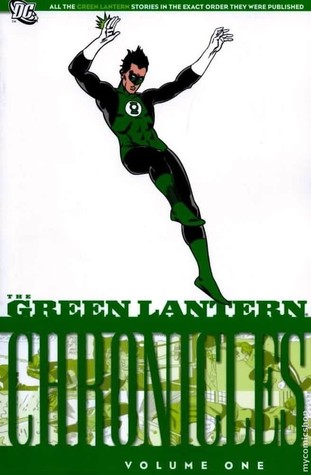MARKET WATCH
Propelled by a slight relaxation of stay-at-home measures, global markets have risen another couple of percentage points over the last two weeks.
With that addition, April will likely end with one of the best monthly performances in decades. As it stands, most international markets trade only 12 per cent lower on the year.
If this seems overly optimistic - given we are in the midst of a pandemic, after all - I wouldn't fault you for thinking it.
Despite this positive news, it will take time before the economy returns to normal. The process will be gradual with some industries, such as, tourism and entertainment, taking months, if not years, to fully recover. Gold continues to maintain its impressive performance (27 per cent higher on the year), while Canadian energy stocks are 47 per cent lower over the same period.
Using history as a guide, there is reason to believe markets will fall again, and perhaps even beyond their previous lows. Should that happen, we are well-positioned to take advantage of the situation. And if they don't, our portfolios will return to their previous levels, and possibly higher, if the energy sector improves.
Negative oil prices?
I recently wrote about the decline of oil prices in my March 19 and April 16 letters. However, since these notes, a fascinating development has emerged: negative prices. While an investment having a negative value might seem impossible, it's not.
Last week, prices for West Texas Intermediate (WTI) plunged below zero - to the tune of negative $37 per barrel. How did this happen? Well, first, we need a quick backgrounder on oil contracts.
Oil contracts (one contract equals 1,000 barrels) are structured by type and delivery dates. When the contract expires, its owner must receive delivery of the oil by the scheduled delivery date. However, before that time, investors often buy and sell these contracts in hopes of making a profit, and ensure they sell the contract before it expires. Failure to do so would result in being forced to receive at least 1,000 barrels oil.
Typically, it's easy to sell a contract before it expires as money can usually be made by refining or storing the black liquid.
Typically, that is, until the recent crash in demand for energy. Over the last few weeks, storage has been filling up to the point where little remained for WTI oil. As last week's expiry neared, investors (without means to store the oil) struggled to find buyers for their contracts. It became so dire that investors could only sell their contract by paying someone to take it. In other words, prices fell below zero. May you live in interesting times!
With energy production exceeding consumption, storage space will remain an issue unless producers can find new storage space. This can happen by curtailing oil production, increasing demand, or acquiring new storage either on land or at sea.
Ironically, even though prices were negative last week and next month's contracts are well below $20, Canadian energy stocks are 30 per cent higher over the last two weeks. This is likely due to investors anticipating further production cuts and considering energy stocks too cheap. Only time will tell.
Still unclear how energy prices went subzero? You wouldn't be the only one - an infographic by the Visual Capitalist does a nice job of explaining last week's energy fluctuations and the current environment.
|
|
IN THE REVIEW QUEUE
The Swerve
by Stephen Greenblatt:
Two thousand years ago, Roman philosopher Lucretius wrote
On the Nature of Things
. It described a
universe guided by physical laws, as opposed to deities, and advised the pursuit of happiness over appeasement of the gods.
Following centuries of accidents, fires and intense church pressure, only one copy of this great poem likely remained in existence. The Swerve chronicles its rediscovery and re-popularization, some six hundred years ago.
The book is well-researched and well-written. It's full of roguish characters, intrigue, and historically significant events. Yet...I did not enjoy it. I struggled to remain interested, often finding it dense and meandering. But, as the book was well-received, the issue may be one of personal taste. If the topic interests you, it may be worth a read. Otherwise, I'd recommend against it.
|
LONG THINGS THAT AREN'T BOOKS

David Sedaris Teaches Storytelling and Humor
by Masterclass:
Wonderful course by humorist David Sedaris. He is personable, self-deprecating, and wise. Key takeaways: the importance of "workshopping" stories (he does public readings) and the number of rewrites he does before deeming a piece finished.
Ninja Writing by Shani Raja: Follow-up Udemy course from Shani Raja's previous Writing With Flair. I highly recommend both for beginners who want to improve their writing.
The Green Lantern Chronicles by John Broome, Gil Kane, Joe Giella and Murphy Anderson: The original Green Lantern graphic novels from 1959 and 1960. Though the artwork was good, the writing was campy, misogynistic and riddled with adjectives. Only recommended for hardcore fans of the golden age of comics
or the Green Lantern.
Green Lantern: Revenge of the Green Lanterns Vol 2 by Geoff Johns, Carolos Pacheco, Ethan Van Sciver & Ivan Reis:
This Green Lantern is more like it! Written in 2006 by graphic novel legend Geoff Johns, the artwork is beautiful and the storylines compelling. Having said that, if you are interested in the Green Lantern, I'd recommend starting at the beginning, as you may get lost with this being Volume 2 of a series that is not the first series of the saga - graphic novels are rarely straightforward.
Perhaps the quarantine has gotten to me, but I recently ordered
Green Lantern Omnibus Vol 1
.
This huge omnibus is a collection of 45 separate books, 1,200 pages long, and the first of the revamped series' three compiled books, which are 3,600 pages in all. This may become a problem...
|
ARTICLES AND VIDEOS

The First Modern Pandemic
by Bill Gates:
Very thorough article on the pandemic. Covers what we do and don't know, the status of treatments and vaccines, as well as, some thoughts on the road back to normalcy. Longish read, but recommended.
Nature Versus Nurture? Add 'Noise' to the Debate by Jordana Cepelewicz:
Our differences are usually attributed to either nature or nurture. This article suggests a third variable may be at play: post-genetic, yet non-environmental randomness.
It's Time to Build by Marc Andreessen:
Great article from Silicon Valley legend Marc Andreesen on the current need for innovation. It's targeted at Americans, but Canada would be wise to heed this advice, too!
Simulating an Epidemic
by 3blue1brown:
Helpful video on network effects regarding the transmission of viruses.
|
SELECT INSIGHTS
"The cost of a thing is the amount of...life which is required to be exchanged for it, immediately or in the long run." - Henry David Thoreau
|
LET'S GET COMFORTABLE
The NFL draft took place last weekend. Being the closest thing to a live sporting event in months, it was the most watched football draft of all time.
|
|
|
|
This provides links to other Internet sites for the convenience of users. Raymond James Ltd. is not responsible for the availability or content of these external sites, nor does Raymond James Ltd endorse, warrant or guarantee the products, services or information described or offered at these other Internet sites. Users cannot assume that the external sites will abide by the same Privacy Policy which Raymond James Ltd adheres to.
The views of the author do not necessarily reflect those of Raymond James. This article is for information only. Raymond James Ltd. Member-Canadian Investor Protection Fund.
|
|
Copyright © 2017. All Rights Reserved.
|
|
|
|